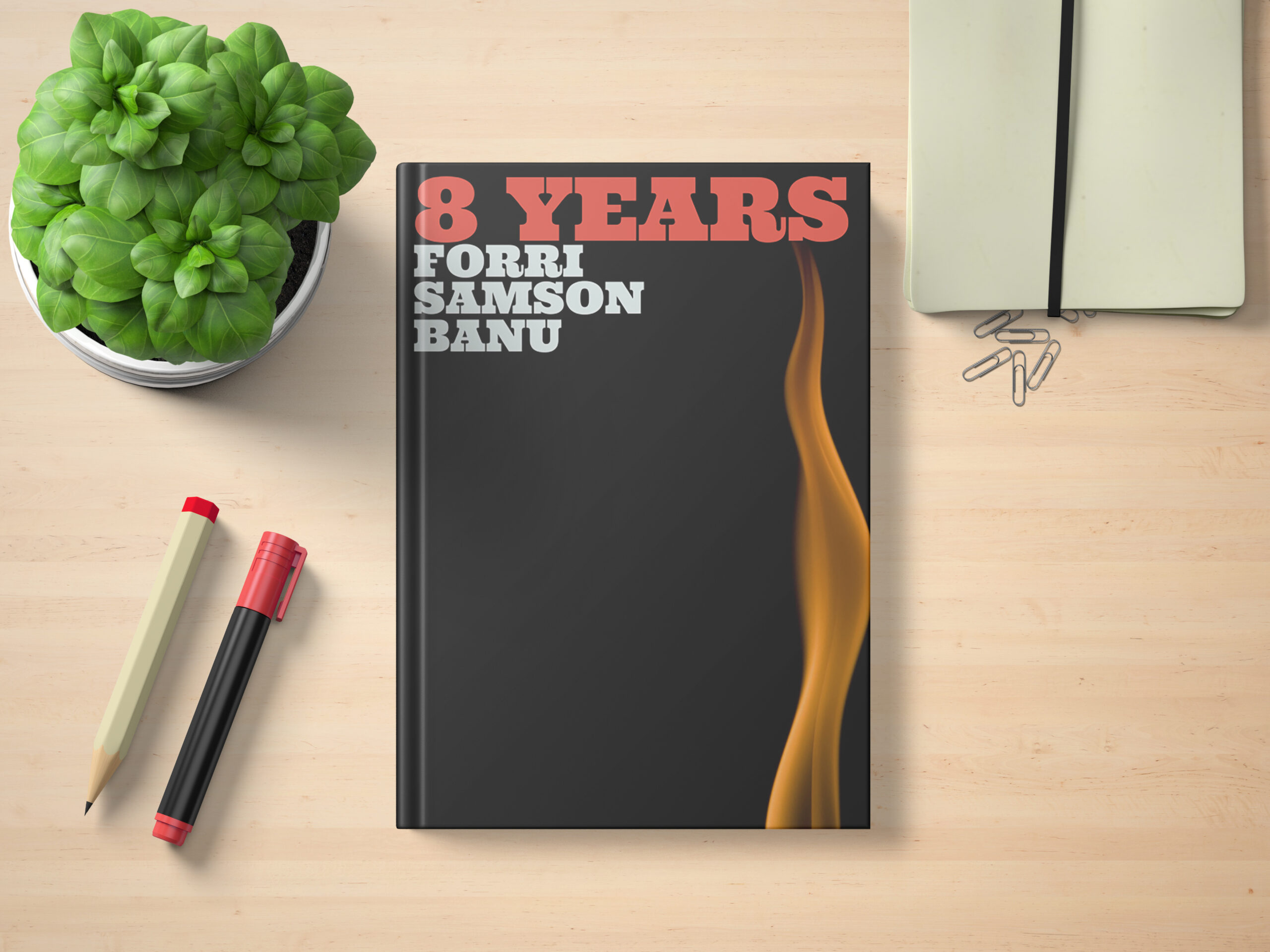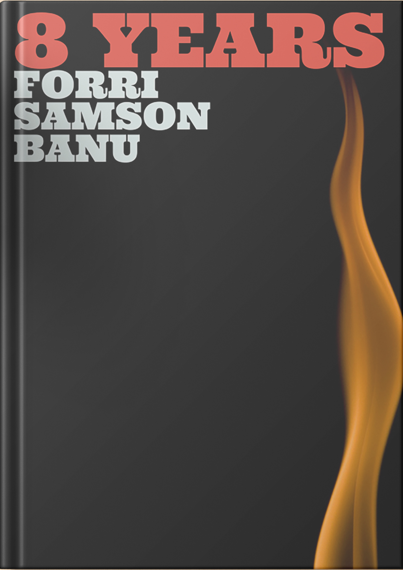Q: Can you speak to us a bit about the inspiration behind your book?
A: Sure. I think there are many strands of thought that came together. On top of that inspiration sheet is probably a U.S. drama series called “The West Wing” and created by Aaron Sorkin. The idea of looking at an executive office through the eyes of the aides of the President, the people who do the day-to-day lifting as well as the elected officials they work for and with, was a superficial concern in the original idea for the book. Of course, my experience in politics and government came to bear at some point but I like to note that I was 2 years into the book before I got appointed into what I would call a pretty small spoke in the large wheel of government. The book itself focuses a lot on much higher offices and officials than I was ever involved in and also, I was in the office of the Vice President, and I do not think I ever even entered the side of the building, where the President dwells and where most of this book is set. I had to imagine and unimagine quite a bit of what that looks like. It is also set in 2011, so that point in history is definitely beyond the scope of what I could possibly know of how the Presidency worked then. And, the last strand, would be just a general interest in governance since I was young and my own third world concerns with how a country ought to work and putting some of my more phantasmic thoughts into words of fiction.
Q: I would like to pick at your brain a bit about the “West Wing” reference, because it seems to me like that is more essential than superficial in the way you approach the book. There is a ring of idealism, I think, in both works. How important is that to your story?
A: Well, I didn’t mean anything by the word superficial in terms of what that series meant to me or this work. I did not meant to make the influence smaller. We devoured the episodes like essential eating at one point and I think I ran through it more than once. It was a touchstone of many great friendships and it put in my head the vague idea that I was liberal, however that feels now. The idealism I definitely took to heart, and it is an idealistic book. I think there is enough stark reality in the third world. Fiction can be an occasion for us to dream responsibly, or even otherwise, about the things we want to see happen in our country. Idealism is a good word in my book. It is a mark of intent, and the best ideas are important to building community and all the other things that make citizenship worthwhile for many people.
Q: So, you’ve been dreaming about government and governance for a long time, and you’ve also had the privilege of serving in government in your own way. Out of all you have studied and experienced, what inspired the time in which this story was set?
A: That’s a great question. I think 2011 represented something for many people who felt cut out of the political mainstream in Nigeria. We had anti-government protests and a pretty brutal general election. It almost seemed like a crossroads for our country. The President and the Vice President were ex-Governors, they were younger than what we have now, the President particularly was not from a major tribe, and this was probably one of the first times a democratic process had brought about that outcome. I was nowhere near government or even politics at the time, I was still in my twenties, but I was very aware of what seemed to be happening. Democracy, in the 4th republic, was just over a decade old. Everything seemed possible at that point and there was hope after some considerable crisis in Nigeria and around the world. We seemed ripe for reform in our public life. And yet there was rising danger everywhere also. It felt like like fertile ground for drama and the sort of speculative fiction that could push the narrative of reform that, sadly, in reality, we did not ultimately achieve in those years.
Q: Delving a little deeper, let’s talk about the characters in the book. It’s a large book with a lot of personality. How did you go about creating those characters, their back stories, their quirks, and their arcs? How were you able to give them all the attention they deserved? How did you prioritize the time, space, and focus they were each afforded?
A: Well, it took a long time, first of all and it did not come easy. I was at this for five years. The template was always interesting people with diverse viewpoints and backgrounds. I did not want to make them good or bad in any simple sense, but I also wanted characters that were seeking their own versions of the greater good. The rest is the creative process and I do not think I could really say how each character is created. It is usually in the thick of things. There were all probably bubbling around in my brain somewhere between experiences, ideas, impressions and just the pure lying that is fiction. I tried to create both chaos and order: chaos so they were not like robots on the page and had interesting arcs and quirks, as you say, but order so it translates as believable and readable to at least one reader. If it all makes sense to only me then I have probably not created something I should share. I let the story give them the rest.
Q: The format of the story is also rather intriguing. Can you explain how you landed on the idea of daily entries and what made that the best way, in your opinion, to structure the book?
A: the idea was to give a small piece of what a day felt like for the characters. To pick out the most interesting parts of their very storied days and display that iceberg. It is an expansive story but I wanted to give it an intimate heart where you could sit with them and see their lives mirrored in the things they were doing for or against their country. The idea seemed hard and impossible. I knew I had to attempt it. Figuring it out, sorting the difficulty of the large idea, for me, is the great joy of writing.
Q: We understand that this will be a series of books, looking forward to it by the way! Without giving too much away, where do these characters go from here, especially considering they have just completed a fantastical 365 day journey?
A: I wish I could say I have it all mapped out. I simply do not. I have really screwed myself by calling it “8 Years”. Now, I have to sort of write 8 books. (laughs). The glory will have to be in the attempt. I have vague ideas of where the characters will go and what our fictional Nigeria will become under their stewardship, but I think it is best to get some distance from all that until I can look at it again from fresh eyes. I never want to write the same book twice. It has to be organic, with the chaos first and them some sort of order. I hope the first one finds an audience; it is a long read and I hope that readers find some real enjoyment in spending time with the book. The rest will come in time.
Q: You spoke a bit about Aaron Sorkin’s work in The West Wing and the effect that had on creating this work. Can you tell us a bit more about some other people or pieces of work that have inspired creativity in you over the years and what those things mean to you on a personal note?
A: That is a very large space to explain. Still on the theme of this book, I remember reading Nadine Gordimer’s “Guest of Honour” and that being a spark, or Chinua Achebe’s “Anthills of the Savannah” as a closer fix on what it is to grapple with your nation and nationhood. Soyinka’s “Ibadan”, parts of it focused on that wild time in the 1960s when post-colonial Nigeria was being forged in fire and blood. They all sort of hit home in thinking of past, present and, possibly future, Nigeria and Africa.
In terms of general inspiration, I would say these greats already mentioned but also Joyce, Hemingway, papa specifically for short sentences that delivered vivid and devastating pictures of imagined life, C.S. Lewis and the exploration of that other life hidden in what we call God. “The Great Gatsby”, “Things Fall Apart” , the poetry of Bukowski, of Yeats, and, of course, Shakespeare, because if you do not deal with Hamlet or Macbeth or Othello, are you really dealing with drama yet?
Personally, fiction of all kinds, books and films and music, have always spoken to me in contrast to the starkest circumstances. I would not call it escapism, but it is an escape from despair and a call to something much more prescient that present circumstances.
Q: Not to end on a dark or too real a note, but we are talking about Nigeria so let’s talk about it. You’ve spoken about your fictionalized hopes for our nation vs its reality. But honestly a lot of the discourse around Nigeria is filled with doom and gloom. What do you think is an achievable, touchable, real hope that Nigerians can hold on to for the future of our country, not the country of our imaginations and fictions but the one we live in?
A: Yes, it is not a question I want to shy away from. I wrote this as a hopeful love letter to a country that actually exists and there is nothing cynical about the hope in these pages. Nigeria has always been an opportunity that the wrong people have taken. That has to change. In the younger generation there is a restlessness, an arrogance, an impatience with the status quo. A large number of young people keep showing up at critical points to declare their stand on the things that matter to them. That can only be a good thing. We are in the eye of various storms but that is just the aforementioned chaos needing the order of our collective will. Nigeria is still an opportunity we have to take for the right reasons. We do have a country here and it is more important than ever to be involved in the things that will make reform possible. I do not think of reform as an empty word. It has to mean something. We cannot be deterred by one electoral outcome or one setback or the most draconian of times. We have survived all these things and we still have the opportunity to move from resilience to actual reform. To change the nature of power and power structures, to move away from old arrangements that do not serve the collective good and to build a country that works for everyone. It is a commitment I have made not with just what I write but how I work and live. I am definitely not the only one. The specifics we will work out in time and space, but I think the kernel of the idea, the thing we must all touch together and call hope is the idea that we can change, that we can evolve and become better at the things we do and since a nation is just all of us together, then our country can do these things too.




